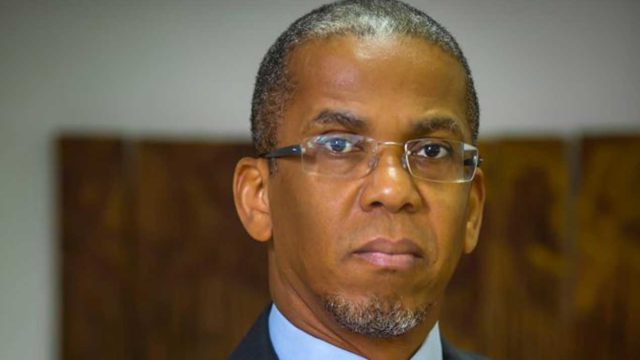Nigeria manufacturers’ export group demands payment of N200bn outstanding EEG debt
Aderemi Ojekunle is a Businessamlive Reporter.
you can contact hin on aderemi.ojekunle@businessamlive.com with stories and commentary.
October 12, 2020767 views0 comments
Onome Amuge

The Manufacturers Association of Nigeria Export Promotion Group (MANEG) has charged the federal government to pay the outstanding Export Expansion Grant (EEG) debt amounting to N200 billion to revitalise the non-oil export sector.
Ede Dafinone, chairman, MANEG, who spoke on behalf of the exporters said companies that exported different kinds of products or commodities between 2006 and 2016 were owed billions of naira in claims as the federal government did not meet the obligation of settling them as promised.
Dafinone explained that apart from N197 billion approved by the National Assembly, there was N130 billion yet to be approved by the National Assembly. He said outside of that, only 17 percent of the 2017 backlog was paid, while 2018 and 2019 were fully outstanding.
Read Also:
- Nigeria's oil falters as Libya claims Africa's top spot
- Nigeria’s Naira: The trashing of ECOWAS’ lead currency
- Electricity supply experience, energy affordability and Nigeria
- Nigeria makes medical milestone with world’s first 5-in-1 meningitis vaccine
- Coalition wants halt to Shell’s $2.4bn Nigeria oil assets sale over safeguards
“The current backlog will be approximately N150 to N200 billion, which is bad because they are creating a fresh backlog and this would bring another batch of promissory notes to be issued in order for exporters to be paid,” he stated.
The MANEG chairman further said that non-payment of EEG was greatly affecting non-oil export in the country. He explained that the country needs non-oil export proceeds to support import-dependent firms, boost foreign exchange availability and shore up foreign reserves.
According to him, “Oil prices crashed in March this year and it highlighted the need for the government to diversify their revenues away from oil towards non-oil. With the stoppage of EEG from 2014 to 2018, there was a complete drop in the amount of non-oil over that period. It is very clear that with EEG, non-oil export significantly grows when that has been paid.”
Dafinone further disclosed that exporters who are beneficiaries of the grant have priced their products at lower prices to break into new markets and in a situation where the EEG has not been paid, the exporters find it unprofitable to break into those markets and divert towards the local market which, clearly, is not good for the Nigerian market.
Speaking on the African Continental Free Trade Area (AfCFTA) he said to have the capacity to create the largest trade zone in the world and increase intra-African trade by 52 per cent by 2022 while removing tariffs on 90 per cent of goods, Nigeria was not ready for the free trade treaty expected to start in January 2021.
“We are not properly prepared to take advantage of the possible benefits and, in my opinion, as a country, we need additional preparation to take full advantage. My view would be that we should, on the back of Covid-19, call force majeure on this and ask for an additional year in order to put our house in order before we go live on the AfCFTA,” he stated.
The EEG was set up in 1986 to help Nigerian exporters become competitive at the global market. It is a practice in many developing and developed countries such as China, India and Australia to provide concessions or cash rebates and grants to companies penetrating new markets or consolidating already established markets to enable them rival competitors.
